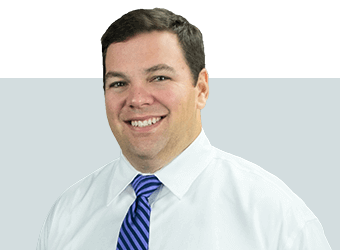
Work Together
If you have a family, significant other, spouse or partner in finance, be sure that everyone is a part of the process. Getting buy-in will increase significantly your chances of budgeting success.

Organize & Categorize
If you don’t know where to get started, simply list your income and expenses for a period of time (i.e. one month or one quarter) to see where you are. Separate your expenses into needs or non-discretionary, lifestyle or discretionary, and other items which could include savings or one-time/irregular occurrences. Several tech tools are out there to help in this process including some bank/credit card sites and software tools like Mint or Mvelopes.

Set Parameters
Famed investor Warren Buffet says “If you buy things you don’t need, you will soon sell things you need.” Start with the most important items (shelter, food, clothing), then move to things that provide safety and comfort (utilities, transportation, debt-repayment) and then onto everything else. One common approach is the 50/30/20 method which suggests 50% of your take-home income be used for non-discretionary spending, 30% for lifestyle spending and the remaining 20% be used for savings/investing for goals or as a buffer for the unexpected.

Budget Every Dollar
The best budgeters will allocate every dollar coming in each month to a category, even if that category is simply adding money to your checking account.

Increase Frequency
Some budgeters find it easier to work or track shorter time periods. If you are off-track 2½ weeks into a monthly budget, it’s easy to just throw in the towel and go wild for the rest of the month. Instead try resetting the bar every week or two weeks, giving yourself more opportunities for success and the ability to right the ship if you continue to get off track.

Stay Flexible
Budgets don’t need to be static. Summertime may have more travel, holidays can mean additional spending and snow plowing hopefully is required for only part of the year. Use the buffer in your budget to adjust for additional expenses or to increase savings in months where spending is lower.
Remember…
Everyone’s goals and finances are different. Don’t be too hard on yourself or compare your budget to others. Find a system that makes sense and that keeps you engaged for the long-term.
Original content provided by Aaron R. Evans, CFA, CFP® a Senior Advisor at Strategic Financial Services. This material does not constitute the advice or recommendation of Strategic Financial services, and should not be used as the basis upon which to make investment or financial decisions. Strategic Financial Services provides advice and makes recommendations based on the specific needs and circumstances of each client. This material is not intended to provide professional tax or legal advice, which should be obtained from a certified tax professionals and licensed attorneys.
About Strategic
Founded in 1979, Strategic is a leading investment and wealth management firm managing and advising on client assets of over $2 billion.
OverviewDisclosures
Strategic Financial Services, Inc. is a SEC-registered investment advisor. The term “registered” does not imply a certain level of skill or training. “Registered” means the company has filed the necessary documentation to maintain registration as an investment advisor with the Securities and Exchange Commission.
The information contained on this site is for informational purposes and should not be considered investment advice or a recommendation of any particular security, strategy or investment product. Every client situation is different. Strategic manages customized portfolios that seek to properly reflect the particular risk and return objectives of each individual client. The discussion of any investments is for illustrative purposes only and there is no assurance that the adviser will make any investments with the same or similar characteristics as any investments presented. The investments identified and described do not represent all of the investments purchased or sold for client accounts. Any representative investments discussed were selected based on a number of factors including recent company news or earnings release. The reader should not assume that an investment identified was or will be profitable. All investments contain risk and may lose value. There is no assurance that any investments identified will remain in client accounts at the time you receive this document.
Some of the material presented is based upon forward-looking statements, information and opinions, including descriptions of anticipated market changes and expectations of future activity. Strategic Financial Services believes that such statements, information, and opinions are based upon reasonable estimates and assumptions. However, forward-looking statements, information and opinions are inherently uncertain and actual events or results may differ materially from those reflected in the forward-looking statements. Therefore, undue reliance should not be placed on such forward-looking statements, information and opinions.
No content on this website is intended to provide tax or legal advice. You are advised to seek advice on these matters from separately retained professionals.
All index returns, unless otherwise noted, are presented as price returns and have been obtained from Bloomberg. Indices are unmanaged and cannot be purchased directly by investors.

 Aaron Evans
Aaron Evans